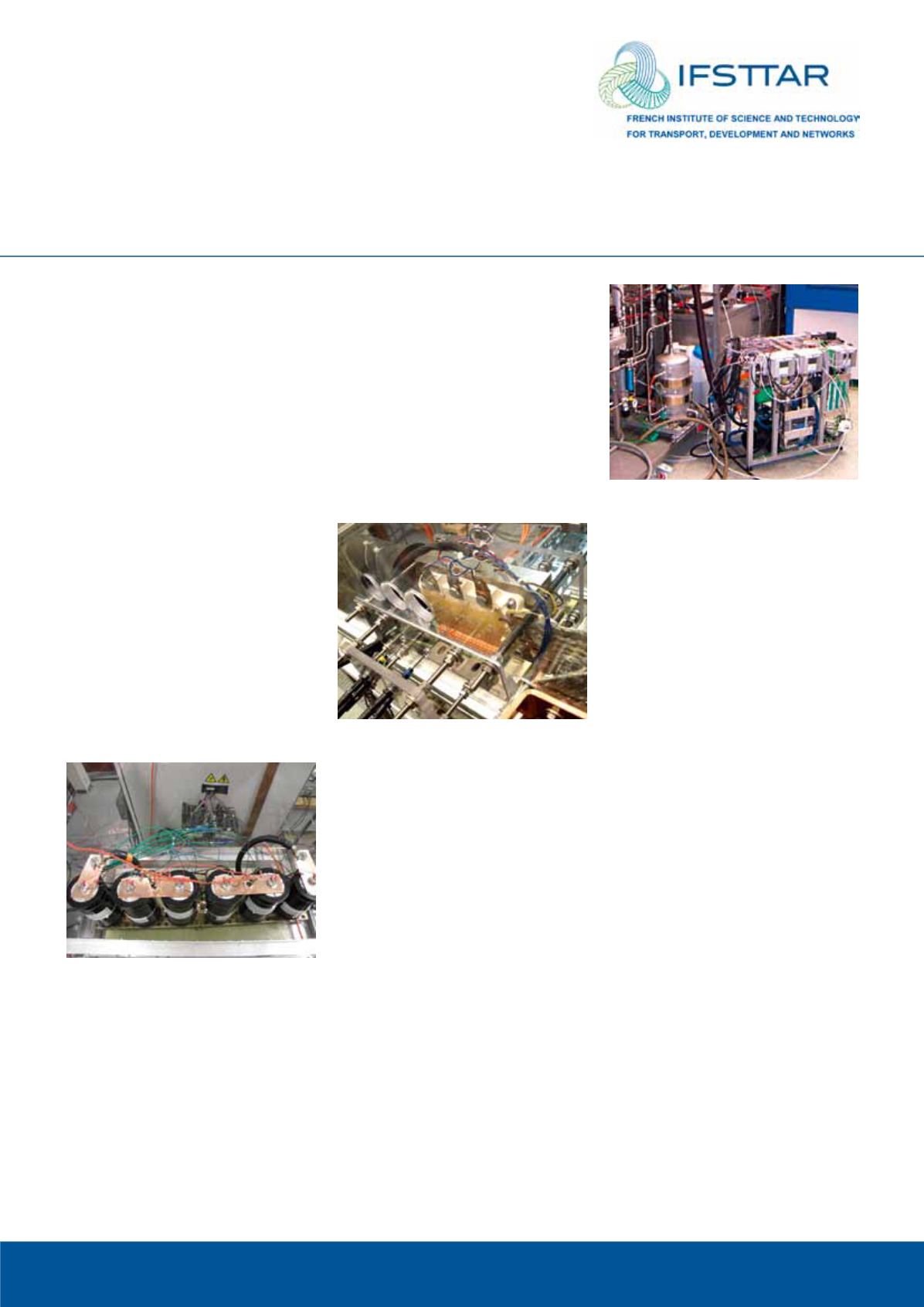
169
IFSTTAR
The laboratory
The Laboratory of New Technologies is a
lab of the IFSTTAR institute. Its proficiency
concerns the power electronics applied to
transport systems, traction applications
(automotive and railway) and electric ac-
tuators (aircraft), with a technological ap-
proach of components (semi-conductors,
ultra-capacitors, fuel cells,…). The global
approach is to contribute to the knowl-
edge of the behavior of new devices sub-
jected to their usage conditions, to study
their integration in the transport modes
and to promote the development of elec-
tric and hybrid transport systems. It is in-
volved in original research in the domain
of the reliability testing of power semicon-
ductor devices, the storage of electrical
energy for urban transport systems and
the integration and interface systems of
fuel cell generators.
Key research fields
Robustness & Reliability of Power
semiconductor devices and integrated
systems
Investigations are especially conducted for
high voltage and high temperature power
semiconductor devices and power mod-
ules. In this field, the research focus is
in one hand the assessment of power
devices lifetime and on other hand on the
understanding of the physical mechanisms
of degradation and aging phenomena
of power IGBT modules and new wide
band gap based semiconductor devices
(SiC, GaN).
Reliability of Energy storage systems
for transport applications (Ultra-Caps)
Works concern the behavior of ultra-cap
devices and systems against ageing by
successive charge and discharge cycles.
The goal is the understanding of their be-
havior in usage conditions. Effects of test
parameters (temperature, voltage, cur-
rent, ...) are evaluated in order to high-
light the key factors involved in failure
modes and to control the reliability and
security of the energy storage systems.
Fuel Cell generator systems for trans-
port applications
The research activities conducted on
fuel cell generators are closely linked with
actual contexts of electrical vehicle and
reduction in greenhouse gas emission.
The focus is done on experimentation
and integration of fuel cell systems in the
transport environment (characterization,
performance improvement, endurance,
reliability and diagnostics). It is also con-
sidered degradation modes and fault tol-
erance of fuel cells.
Competence areas
•
Reliability testing (ageing tests by power
cycling, thermal cycling)
•
Search for ageing indicators (damage
detection)
•
Si (power IGBT modules) and WBG (SiC
and GaN) devices
•
Electrical characterization in high pow-
er range (4kV-6kA from –40°C to
125°C, 20A-6kV @250°C)
•
Thermal characterizations (Rth, Zth,
transient thermal analyses,…)
•
IR thermography
•
Physics of failure (Failure analyses, failure
mechanism investigations)
•
Multi-physic modeling (electro-thermal,
thermo-mechanical)


